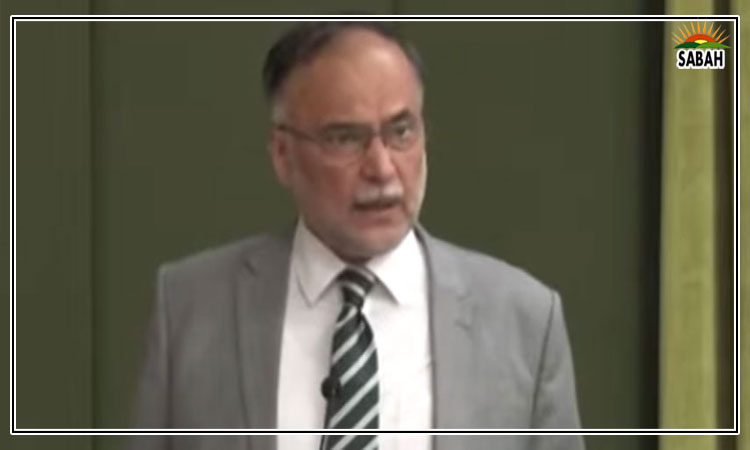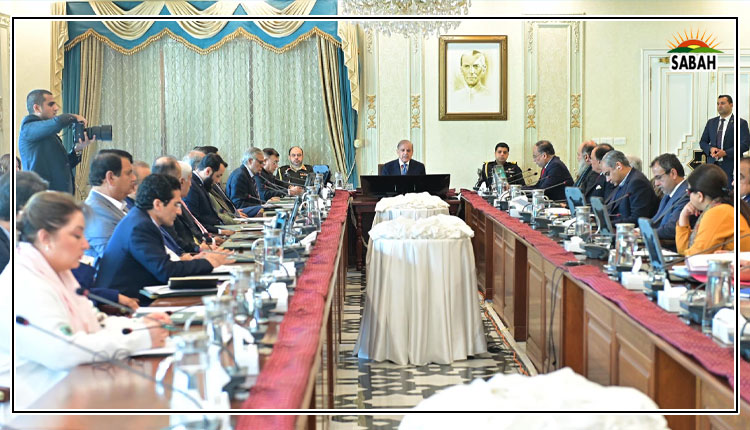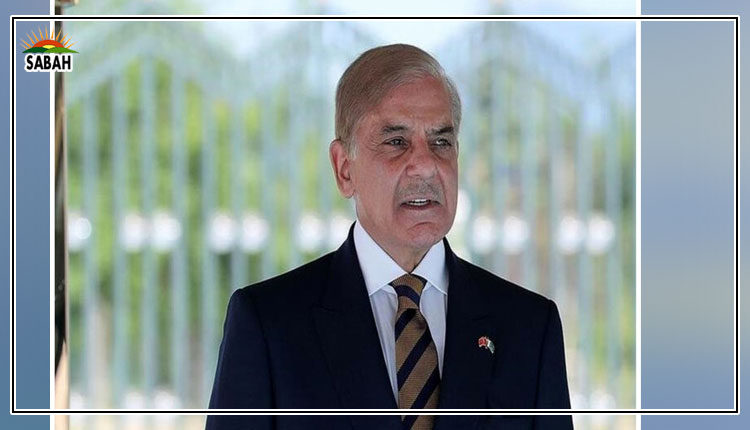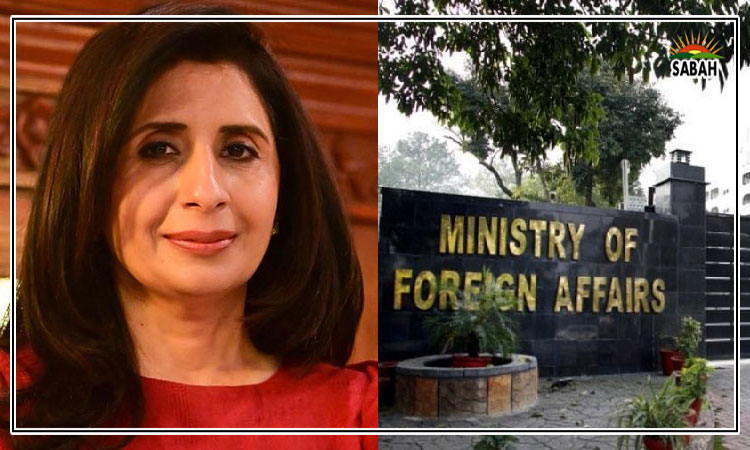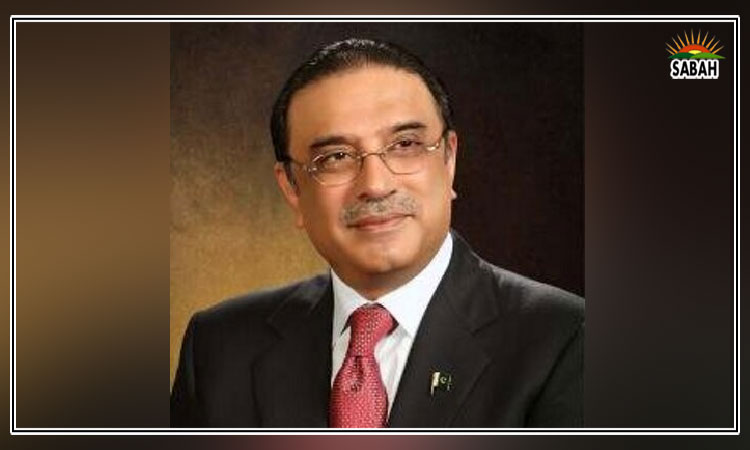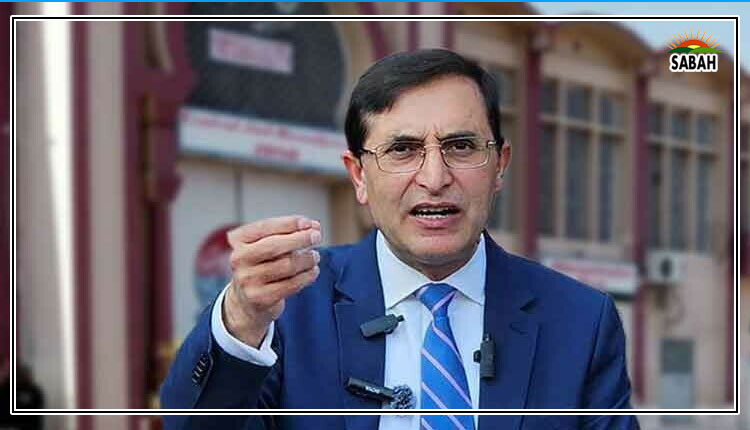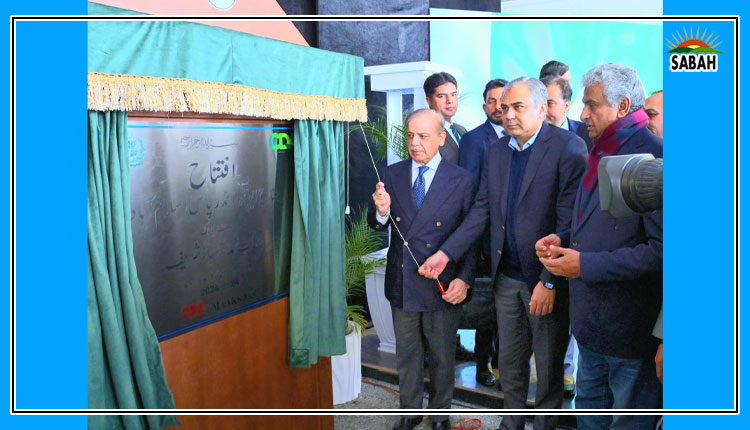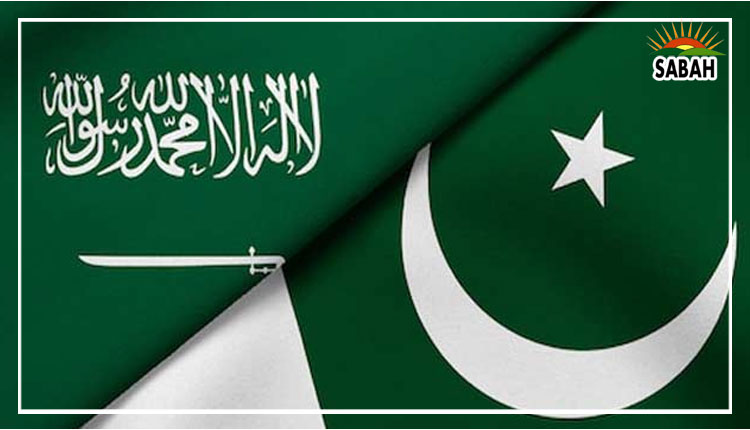Saudi Arabia affirms its continuous support to Pak & its economy, including augmenting $3 billion deposit with the Central Bank through term extension or otherwise
RIYADH, May 01 (SABAH): Pakistan and Saudi Arabia have agreed to strengthen cooperation in investment, industrial and mining sectors.
This was stated in a joint declaration issued in Riyadh at the conclusion of three-day official visit of Prime Minister Mian Muhammad Shehbaz Sharif to Saudi Arabia.
The joint statement says that in view of the close historical ties and the Islamic brotherly relations between the Kingdom of Saudi Arabia and the Islamic Republic of Pakistan, the Prime Minister of the Islamic Republic of Pakistan Muhammad Shehbaz Sharif, paid an official visit to the Kingdom of Saudi Arabia during 27 – 29/09/1443H corresponding to 28 – 30/04/2022. Prince Mohammed bin Salman bin Abdulaziz Al Saud, Crown Prince & Deputy Prime Minister, received the Pakistani Prime Minister in Jeddah. An official meeting was held between both sides, during which they reviewed the historical relations between the two countries and the close cooperation in various fields, as well as discussed ways to strengthen relations in all areas.
In the bilateral context, the two sides stressed the importance of strengthening work through the Saudi-Pakistani Supreme Coordination Council, diversifying trade exchange between the two brotherly countries and intensifying communication between the private sector in the two countries in order to discuss trade and investment opportunities and turn them into tangible partnerships.
The Kingdom of Saudi Arabia affirmed its continuous support to Pakistan and its economy including the discussion of augmenting the three billion USD deposit with the central bank through term extension or otherwise, and exploring options to further enhance the financing of petroleum products and supporting the economic structural reforms for the benefit of Pakistan and its people. Pakistan greatly appreciates the continued strong support of the Kingdom of Saudi Arabia to Pakistan. The two sides agreed to deepen the investment cooperation between the two countries, stimulate partnerships and enable investment integration opportunities between the private sector of the two countries.
They also agreed to join efforts to develop the investment environment in the two countries and support a number of investment sectors of common interest. The two sides stressed the importance of strengthening and developing cooperation in the industrial and mining sectors to serve their strategic interests in accordance with the vision of the leaderships of the two countries which aims at further enhancing the cooperation between both countries.
The two sides expressed their intention to hold investment forums in order to introduce the available opportunities to the business sectors of both sides, urge them to establish partnerships in various investment fields, and work jointly to solve the challenges faced by the investors through holding meetings of the Saudi-Pakistani Business Council. The two sides welcomed the entry of the private sector of both countries into investment partnerships in the agricultural and food industries fields.
The two sides stressed the importance of cooperation between the two countries in respect of the opportunities available through the economic transformation programs under the Kingdom’s Vision 2030 and benefiting from the distinguished Pakistani expertise and capabilities in a number of sectors in order to achieve mutual benefit of the two countries’ economies.
The two sides also agreed to enhance media cooperation, explore opportunities to develop cooperation in the fields of radio, television and news agencies, and exchange experiences in order to develop the joint media work. In the field of environment, the Pakistani side valued the Kingdom’s efforts and initiatives in the field of climate change, addressing environmental challenges and improving the quality of life. The two sides agreed to continue cooperation in this field.
The Islamic Republic of Pakistan also welcomed the Kingdom’s launch of the “Saudi Green” and “Middle East Green” initiatives, and expressed its support for the Kingdom’s efforts in the field of climate change through the implementation of the circular carbon economy approach, which was launched by the Kingdom and approved by the G20 leaders. The two sides expressed their aspiration to implement these two initiatives. In the same context, the two sides stressed the importance of adhering to the principles of the Framework Convention on Climate Change and the Paris Agreement, and the need to develop climate agreements by focusing on emissions without sources. In the field of energy, the Pakistani side welcomed the Kingdom’s decision to extend the agreement to finance exports of crude oil products and oil derivatives.
The two countries agreed to explore ways of joint cooperation in a number of fields, including innovative uses of hydrocarbons, electricity, clean technologies for hydrocarbon resources, energy efficiency, localization of the energy sector products and supplying the chains associated with it, working on the renewable energy projects and developing such projects through various sources such as solar and wind energy, in addition to considering partnership opportunities in these sectors. In the political context, the two sides exchanged views on issues of mutual concern in the regional and international levels, and agreed on the importance to continue coordinating their positions in a way that serves their interests.
The two sides affirmed their stance to consolidate security and stability, renounce violence, extremism and terrorism, support the unity and independence of the countries of the region and their territorial integrity, as well as to give priority to political solutions that bring prosperity & progress to the region and its people. The two sides agreed to continue exchanging support and coordination in international organizations and forums, and stressed the importance of all countries’ commitment to the United Nations Charter and the principles of international law, adherence to the principles of good neighborliness, respect for the unity and sovereignty of states, non-interference in internal affairs, and striving to resolve disputes by peaceful means.
The two sides reiterated their support for the efforts made by the Coalition to Support Legitimacy in Yemen, the initiatives aimed at reaching a comprehensive political solution to the Yemeni crisis in accordance with Security Council Resolution 2216, Gulf Initiative and its executive mechanisms, and the outcomes of the National Dialogue Conference.
The two sides renewed their condemnation of the Houthi terrorist threat to the stability and security of the Kingdom by launching ballistic missiles against vital installations and civilian objects, and expressed their deep concern about the threat to the security of oil exports and the stability of energy supplies to the world.
The two sides welcomed the decision of the former Yemeni president, issued in accordance with the Yemeni constitution and the Gulf initiative and its executive mechanisms, to establish the Presidential Leadership Council in order to complete the implementation of the tasks of the transitional period, transfer power to the Presidential Leadership Council, and delegate the Council with the full powers of the President of the Republic.
The two sides affirmed their full support for the Presidential Leadership Council and its supporting entities to enable it to exercise its duties in implementing effective policies and initiatives that would achieve security and stability in the Republic of Yemen.
The two sides stressed the need for the international community to take measures to ensure the Houthis’ involvement in political consultations under the supervision of the United Nations to reach a final and comprehensive political solution.
The Kingdom of Saudi Arabia welcomed the statements of Pakistan mentioning keenness to find a solution to all disputes with India, including the Jammu and Kashmir dispute. The two sides stressed the importance of dialogue between Pakistan and India in order to resolve the issues between the two countries, especially the Jammu and Kashmir dispute, to ensure peace and stability in the region. The two sides discussed the developments of the Palestinian cause, and stressed the importance of preserving the status and the Islamic character of Al-Quds Al-Sharif in the Arab and Islamic nations, and achieving comprehensive and just peace in accordance with the relevant resolutions of international legitimacy and the Arab Peace Initiative, which guarantees the right of the Palestinian people to establish their independent state on the 1967 borders with East Jerusalem as its capital.
On the Syrian issue, the two sides stressed the importance of reaching a solution to the Syrian crisis that would achieve the aspirations of the Syrian people and preserve Syria’s unity and territorial integrity. They stressed the need to limit regional interference in the Syrian affairs that threatens the security and stability of Syria, its territorial integrity and the cohesion of its social fabric, and the need to support the efforts of the UN Special Envoy for Syria. The two sides also stressed the importance of supporting Iraq’s stability and territorial integrity. The two sides discussed the latest developments in Afghanistan, and agreed on the need to achieve security and stability, and to prevent the use of Afghan lands as a shelter for terrorist groups.
The two sides also agreed on the importance of following up and implementing the outcomes of the extraordinary meeting of CFM OIC on Afghanistan, aimed at supporting stability and providing humanitarian support to the Afghan people. They also stressed the importance of respecting the rights guaranteed by the tolerant Islamic Sharia, in order to achieve security and peace for Afghanistan, and the continuation of concerted international efforts to provide aid to the Afghan people. They expressed their hope that the Russian and Ukrainian sides would reach a political solution that would end the crisis, achieve security and stability, and limit negative repercussions at the regional and international levels.
At the end of the visit, the Pakistani Prime Minister expressed his profound gratitude to the Custodian of the Two Holy Mosques King Salman bin Abdulaziz Al-Saud, and Prince Muhammad bin Salman bin Abdulaziz Al-Saud, Crown Prince & Deputy Prime Minister as well as the Government of the Kingdom of Saudi Arabia for the generous hospitality extended to the Prime Minister and his delegation. Prince Mohammed bin Salman bin Abdulaziz, Crown Prince & Deputy Prime Minister, expressed his best wishes for good health and happiness for the Prime Minister of Pakistan, and further prosperity and progress the brotherly people of Pakistan.



